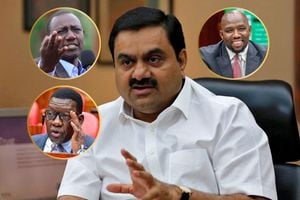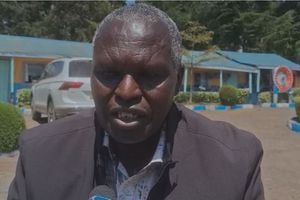Must I disclose my marital status during a job interview?

Some organisations have a diversion and inclusion policy, which is supposed to create and sustain a culture of equity and belonging.
What you need to know:
- Every actual or potential employer need to read and understand Article 10 of the Constitution, which states national values and principle of governance.
- It is essential for employers and employees to always underscore Article 41 Clause 1 of the Constitution, which gives every person a right to fair labour practices.
Hi Eric,
I attended an interview and was asked if I was married. I consider that a private matter, but they seem very insistent. Does the law require me to reveal my marital status?
Dear Reader,
The Constitution of Kenya in Article 27 lays bare the standard by which the law must treat people and institutions. Clause 1 provides that every person is equal before the law and has the right to equal protection and benefit from the law.
Every actual or potential employer need to read and understand Article 10 of the Constitution, which states national values and principle of governance.
Clause 1 provides that these values bind every state and public officer and all persons whenever any of them applies or interprets the Constitution, enacts, applies, or interprets any law, or implements public policy decisions.
Clause 2 Paragraph (b) enumerates national values and principles of governance to include human dignity, equity, social justice, inclusiveness, equality, human rights, non-discrimination, and protection of the marginalised.
It is essential for employers and employees to always underscore Article 41 Clause 1 of the Constitution, which gives every person a right to fair labour practices. This should include exposure to appropriate recruitment processes that are not skewed for any reason imaginable.
In Part II of the Employment Act, Section 5 Clause 1-b, the law directs the Cabinet Secretary, labour officers, and the Employment and Labour Relations Court the duty to eliminate discrimination in employment.
Non-discrimination
Clause 3 (a) of the same Section cautions all employers not to discriminate directly or indirectly against an employee or potential employee on the grounds of race, colour, sex, language, religion, political or other opinion, nationality, ethnic or social origin, disability, pregnancy, mental status or HIV status.
Further paragraph (b) provides that such a non-discrimination attitude must be practiced regarding recruitment, training, promotion, terms and conditions of employment, termination of employment, or other matters arising out of the employment.
Non-discrimination is expected to form part of an organisation's human resource management policy. Section 7 (c) of Part II of the Employment Act presents the employment policy to include any policy or practice relating to recruitment procedures, advertising and selection criteria, appointments and the appointment process, job classification and grading, remuneration, employment benefits and terms and conditions of employment, job assignments, the working environment and facilities, training and development, performance evaluation systems, promotion, transfer, demotion, termination of employment a disciplinary measures.
Some organisations have an Equal Employment Opportunity policy, which tends to improve recruitment and demands that all applications are considered equally regardless of background, race, culture, religion, language, and others.
Others have a diversion and inclusion policy, which is supposed to create and sustain a culture of equity and belonging.
Data Protection Act
Similarly, other organisations have either a stand-alone recruitment and selection procedure or within a human resource policy that tends to enumerate deliberate steps an institution makes to ensure that its recruitment processes remain objective and unbiased despite the particular vacancy's subjectiveness.
This conversation may also refer to what the Data Protection Act provides in ensuring that information about any individual is accessed within the law.
This Act defines sensitive data to include personal data, which means data revealing a person's race, health status, ethnicity, social origin, conscience, belief, genetic data, biometric data, property details, marital status, family details, including names of a person's children, parents, spouse or spouses, sex, or sexual orientation.
Where such data is required, Section 25 of the Data Protection Act directs that it should be done in the confines of Article 31 of the Constitution, which gives every person the right to privacy, which includes the right not to have information relating to family or private affairs unnecessarily required or revealed.
No law requires one to disclose their marital status during recruitment. All employers and human resource practitioners need to know that letting diversity, equity, inclusion, and belonging be a foundational part of how they approach others in their personal and professional lives creates an environment that people want to be a part of.
Send your legal questions to [email protected]





